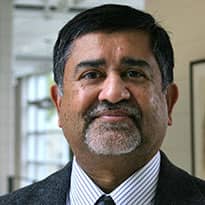All these seemingly wild, random exclamations were taken with large doses of salt or were ignored by those who came to see him and to listen to him, because in an absurd way they all understood that it was absurd, and that it was UG's manner to drive them crazy to the point of an enlightenment that he promised they would never experience! I remember that back in 1983, one of the young Western men at the Bangalore meeting wore a t-shirt with the slogan: "You ain't got a chance!"
If they were all told that they did not stand a chance in attaining what they seemed to want and what they believed they might get from him, why did UG attract so many faithful, and why did they stick with him, give him money, entertain him, and take care of him? Does this all not point to an UG cult, with the intelligent, smart, and knowledgeable "devotees" just not able to break away from his hypnotic hold on them?
UG Krishnamurti and J Krishnamurti shared an uncommon lot, and their lives intertwine in fascinating and paradoxical ways, with UG trying to shame his elder fellow-guru for his double-standards, mixed messages, and complicated personal life, while realizing at once that traveling and living as he did, he imitated J Krishnamurti in inescapable ways. Both claimed that the way we live, think, and act are destructive and debilitating, but that paradoxically we are also wired to live, think, and act in these ways, unless some "accident" befalls us, changing us and freeing us irrevocably. UG indicated that there was no specific tactic, practice, or philosophy that would help us experience such an "accident," and he sharply criticized J Krishnamurti for holding out such hope to people. UG shadow-boxed JK on this score, and yet what accounted for so many joining the UG cult if they did not hope for some grace from this guru?
I taught at The Valley School for two years, and as a young, confused man I realized that the Krishnamurti philosophy and the cultish dynamics that prevailed around him were debilitating if taken too seriously. I realized too that the teachings in Indian yoga, philosophy, and practice provided more sane and healthy strategies for pursuing mental, physical, and spiritual well-being, and cults were cults, however smart the followers, and however sophisticated the gurus.
Goner therefore is an interesting read for those who have begun to discover the two Krishnamurtis. It also provides some insight into the human quest to transcend, and of human weakness and gullibility. There is no escape from thought with thought, and those traveling that road will encounter enormous pain, failures, and frustration. But then, accidents may happen!





